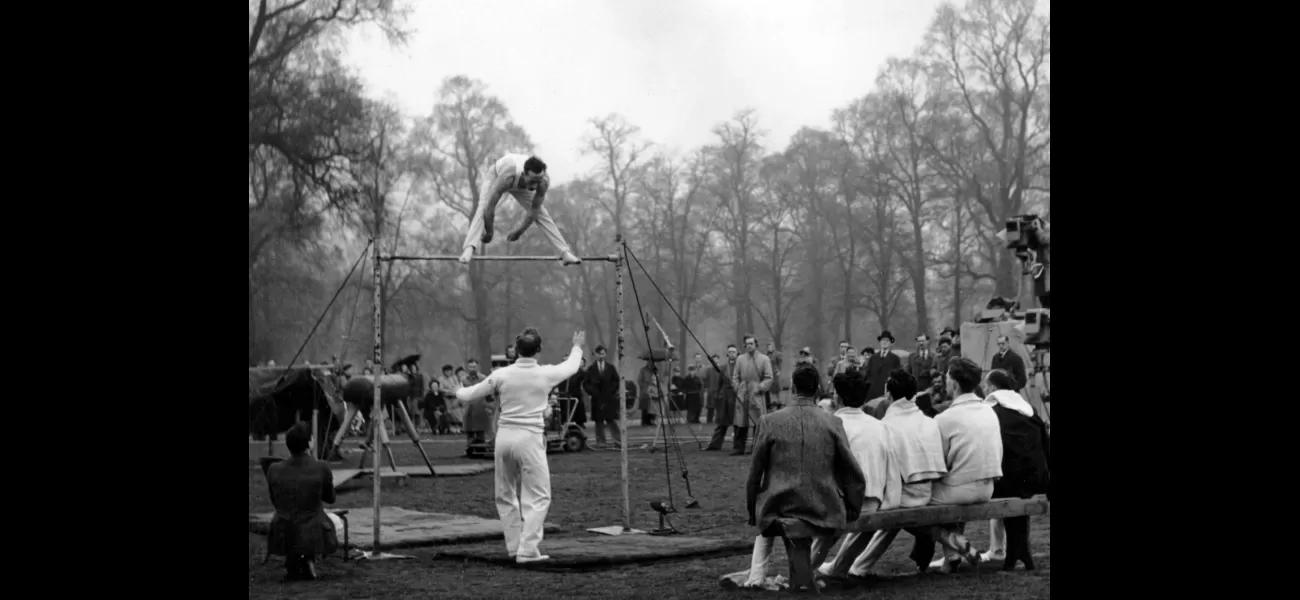The UK's 'Austerity Olympics' were a series of summer Olympic games held in London in 1948, during a period of economic hardship and rationing after World War II.
How did the Olympics fare as the world emerged from war?
July 28th 2024.

In preparation for the 1948 Olympic Games, the British Olympic Team of Gymnasts were hard at work, practising on the high bar in Hyde Park. The competition, known as the "Popular Olympics" in France, was not always as glamorous as it may seem. In fact, the 1948 games were dubbed the "Austerity Olympics" in Britain, and there were no scents of freshly baked croissants to be found.
But despite the lack of opulence, the spirit of camaraderie and patriotism burned brighter than ever as the world emerged from the devastation of World War Two. The opening ceremony at Wembley Park drew a crowd of 85,000, and for the first time in a long time, global unity seemed like a tangible reality rather than a distant hope. Lord Burghley, who opened the ceremony, captured this sentiment perfectly when he declared, "The hour has struck, a visionary dream has today become a glorious reality."
In true London fashion, 2,500 pigeons were released and King George VI officially declared the "Austerity Games" open after a 12-year hiatus. The decision to bring back the prestigious event, despite the financial and emotional toll of the war, was a testament to the resilience and determination of the participating countries. The UK, still in the early stages of rebuilding after the bombings, stepped up to the challenge of hosting.
Unlike the flashy and successful games in 2012, the 1948 London Olympics had no new venues, as it was impossible to build anything significant just three years after the peace treaties were signed. Athletes had to make do with subpar accommodations, as London was still in the process of rebuilding thousands of bombed-out buildings. Even the British participants had to provide their own shorts and towels, and the provided bed linen was less than satisfactory. In fact, one athlete, Jack Braughton, worked a morning shift on a construction site before competing in the 5,000-meter heats.
Despite the challenges, a record 59 nations participated in the games, with only a few countries, including Germany, Japan, and the Soviet Union, being banned or refusing to take part. The competition was fierce, and highlights included Dutch sprinter Fanny Blankers-Koen, also known as the Flying Housewife, winning four gold medals in athletics while also being a mother of two.
The 1948 Olympics were seen as a great success, with a 580-page report stating, "Thus were launched the Olympic Games of London, under the most happy auspices. The smooth-running ceremony profoundly moved not only all who saw it, but also the millions who were listening in on the radio throughout the world." It was a testament to the resilience and determination of the participating nations, who came together to celebrate a sense of normalcy and unity after years of turmoil.
But despite the lack of opulence, the spirit of camaraderie and patriotism burned brighter than ever as the world emerged from the devastation of World War Two. The opening ceremony at Wembley Park drew a crowd of 85,000, and for the first time in a long time, global unity seemed like a tangible reality rather than a distant hope. Lord Burghley, who opened the ceremony, captured this sentiment perfectly when he declared, "The hour has struck, a visionary dream has today become a glorious reality."
In true London fashion, 2,500 pigeons were released and King George VI officially declared the "Austerity Games" open after a 12-year hiatus. The decision to bring back the prestigious event, despite the financial and emotional toll of the war, was a testament to the resilience and determination of the participating countries. The UK, still in the early stages of rebuilding after the bombings, stepped up to the challenge of hosting.
Unlike the flashy and successful games in 2012, the 1948 London Olympics had no new venues, as it was impossible to build anything significant just three years after the peace treaties were signed. Athletes had to make do with subpar accommodations, as London was still in the process of rebuilding thousands of bombed-out buildings. Even the British participants had to provide their own shorts and towels, and the provided bed linen was less than satisfactory. In fact, one athlete, Jack Braughton, worked a morning shift on a construction site before competing in the 5,000-meter heats.
Despite the challenges, a record 59 nations participated in the games, with only a few countries, including Germany, Japan, and the Soviet Union, being banned or refusing to take part. The competition was fierce, and highlights included Dutch sprinter Fanny Blankers-Koen, also known as the Flying Housewife, winning four gold medals in athletics while also being a mother of two.
The 1948 Olympics were seen as a great success, with a 580-page report stating, "Thus were launched the Olympic Games of London, under the most happy auspices. The smooth-running ceremony profoundly moved not only all who saw it, but also the millions who were listening in on the radio throughout the world." It was a testament to the resilience and determination of the participating nations, who came together to celebrate a sense of normalcy and unity after years of turmoil.
[This article has been trending online recently and has been generated with AI. Your feed is customized.]
[Generative AI is experimental.]
0
0
Submit Comment





